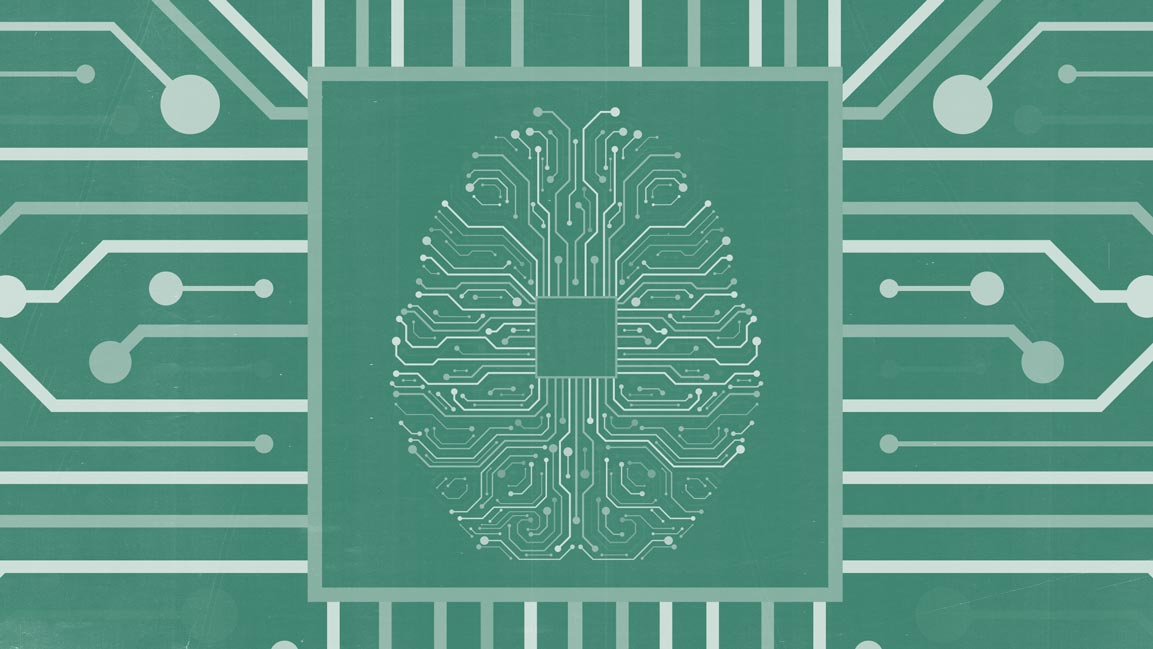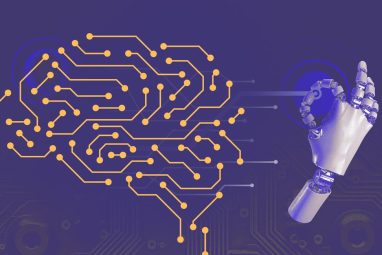How du is Shaping the UAE’s Connected and Inclusive AI Future
At Envision 2025, UAE tech leaders united to ensure AI benefits all communities through cross-sector collaboration.
Topics
News
- UAE introduces federal law to regulate child safety across digital platforms
- Middle East Has a Competitive Advantage as a Data Center Powerhouse, Says BCG
- CBD Becomes the UAE’s First Bank to Go Live Under the Open Finance Framework
- Will Halt Potential Rogue AI Systems, Says Microsoft AI Chief
- Google Bets Big on Data Infra With a $4.75B Deal in Intersect
- OpenAI Softens ChatGPT’s Tone While Scaling for an AI Showdown

[Image source: Chetan Jha/MITSMR Middle East]
While AI rewires economies and societies worldwide, the UAE is moving decisively to be at the helm of this shift. Recognizing that technology alone cannot unlock AI’s full potential, national leadership is championing a collaborative approach that aligns vision, infrastructure, policy, and talent.
This vision was powerfully conveyed at the third edition of Envision, hosted by du on September 9, 2025, at Atlantis The Royal, Dubai. The event gathered government officials, corporate leaders, and global technology partners to explore how leadership and technology together can drive the UAE’s AI ambitions.
The Driving Force Behind AI
Fahad Al Hassawi, CEO of du, set the tone by emphasizing that technology is not enough without strong leadership to harness its potential. He also highlighted the rapid pace of AI adoption across the UAE’s business landscape, which signals readiness and boldness among enterprises. “What impresses me the most is this: 42% of our companies have already deployed AI. That’s not just adoption, that’s courage.”
These comments frame the event’s central message: success in AI depends as much on vision and decision-making as on technology itself.
Chief ICT Officer of du, Jasim Al Awadi, reinforced this by focusing on the importance of clarity in direction and leadership. He noted, “AI is no longer about acquiring technology. Clarity of direction, decision-making, and leadership are what propel transformation.”
For Al Awadi, the theme “AI progress begins when leaders and technology align” serves as a personal mission. “It’s about recognizing that technology without leadership is merely code, and leadership without technology is just ambition. But when they come together? That’s when magic happens,” he said.
This move beyond mere technology acquisition signals the UAE’s AI ecosystem coming of age, where strategic leadership is translating ambition into impact.
Innovation and Speed: Essential for Competitive Advantage
Delving into du’s technical innovations, Al Awadi shared how the company is building world-class infrastructure to support AI’s demanding workloads, highlighting the development of “liquid-cooled hyperscale data centers, sovereign and multi-cloud infrastructure, advanced cybersecurity platforms, and AI/GPU-as-a-Service offerings.”
These advanced solutions are designed to meet the unique challenges of AI workloads, such as energy efficiency and data sovereignty, thus positioning the UAE as a regional AI hub.
He further emphasized the critical role of speed in B2B markets, emphasizing that “delay drains value. Speed, when grounded in trust, is everything.”
Supporting this view, Badr Tharwat, Senior Vice President at Oracle, discussed how cloud technology is catalyzing this transformation. He explained, “Cloud is enabling unprecedented change, and partnering with du allows us to deliver speed, local control, and scale that the UAE’s AI ecosystem needs.”
Highlighting current enterprise trends, he added, “50% of CIOs plan to increase cloud spending, and seventy percent want the majority of their operations cloud-based.”
This cloud migration trend signals that organizations see cloud infrastructure as foundational for AI innovation and agility.
Tharwat also called attention to the rise of sovereign cloud solutions in the UAE, noting that “legacy data centers are expensive and slow. The sovereign cloud is not just the future—it’s here.”
Trust, Security, and Governance: The Foundation of AI Adoption
With rapid innovation comes increased risks. H.E. Amer Sharaf, CEO of Dubai’s Electronic Security Center (DESC), underscored the critical role of cybersecurity in building trust. “Innovation is a key pillar of our cybersecurity agenda. We are building frameworks that enable both trust and transformation,” he said.
DESC is actively developing policies to govern AI deployment securely across public sectors. “Our AI security policy guides secure AI deployment across government, and our zero trust policy ensures data protection, authentication, and network integrity.”
These efforts ensure that as AI adoption grows, privacy and security remain paramount, building public confidence in new technologies.
From Hype to Impact: Real-World AI Applications
Faisal Ameer Malik, CTO of Huawei Middle East & Central Asia, offered a grounded perspective amid the AI excitement. While acknowledging AI’s transformative potential, he cautioned against superficial adoption driven by hype. “Yes, AI is extraordinary, but without real-world use cases and ROI, it risks becoming just another technology that came and went.”
Huawei is taking a vertical-focused approach, embedding AI in industries critical to the UAE’s economy. “We focus on vertical AI applications in government, oil and gas, and transport, alongside transforming enterprise processes like fraud detection and HR,” he said.
Malik highlighted the importance of foundational AI technologies as well. “We also provide AI foundational tools like open-source LLMs and AI environment managers. Our AI Super Node Cloud Matrix can scale to 160,000 NPUs, powering national AI clusters.”
This infrastructure supports complex AI workloads, enabling the UAE to build its own AI capabilities at scale.
Malik concluded with a commitment to the country’s AI vision: “We’re dedicated to supporting the UAE’s 2031 AI strategy—not just through infrastructure, but by building the human capital and ecosystems that make AI real.”
The Human Side of AI
Adding a more personal, human perspective, entrepreneur and investor Randi Zuckerberg shared reflections on how technology intersects with creativity and community. “I love AI. I love AI data centers. But we have to talk about how technology fits into our human stories—our children, our creativity, our communities.”
Zuckerberg recounted the early days of digital marketing at Facebook, where she initially resisted new technology but later embraced its potential. “When I was assigned to digital marketing at Facebook, I was angry—I didn’t understand it. But it turned out to be the most pivotal time of my career.”
She highlighted how innovation often comes from unexpected places, and how “the most powerful ideas never came from senior leaders. They came from outsiders, people with fresh perspectives, and from bold experiments.” This insight aligned with the event’s theme of inclusive innovation and the importance of empowering diverse voices.
In addressing challenges of diversity in tech, Zuckerberg was candid: “I found myself in a complicated relationship with technology. I loved what we were building, but it was hard always being the only woman in the room. We need to make sure the next generation of girls and women feel they belong in this world.”
She closed with a rallying call to creators and innovators: “Take risks. Bring your boldest ideas forward. Never forget the human element in the AI age.”
A Movement, Not a Moment
With the UAE’s AI market expected to surge from $12 billion to $170 billion by 2030, Envision 2025 was more than an event, it was a call to action. Al Hassawi reflected on the country’s long tradition of visionary leadership, positioning “the UAE as a nation of builders and dreamers. Now, we are transforming data into action, and vision into value,” he added.
As the summit concluded, one message resonated clearly: AI progress begins not with technology alone, but with visionary leadership, trusted infrastructure, and a commitment to inclusive innovation.








